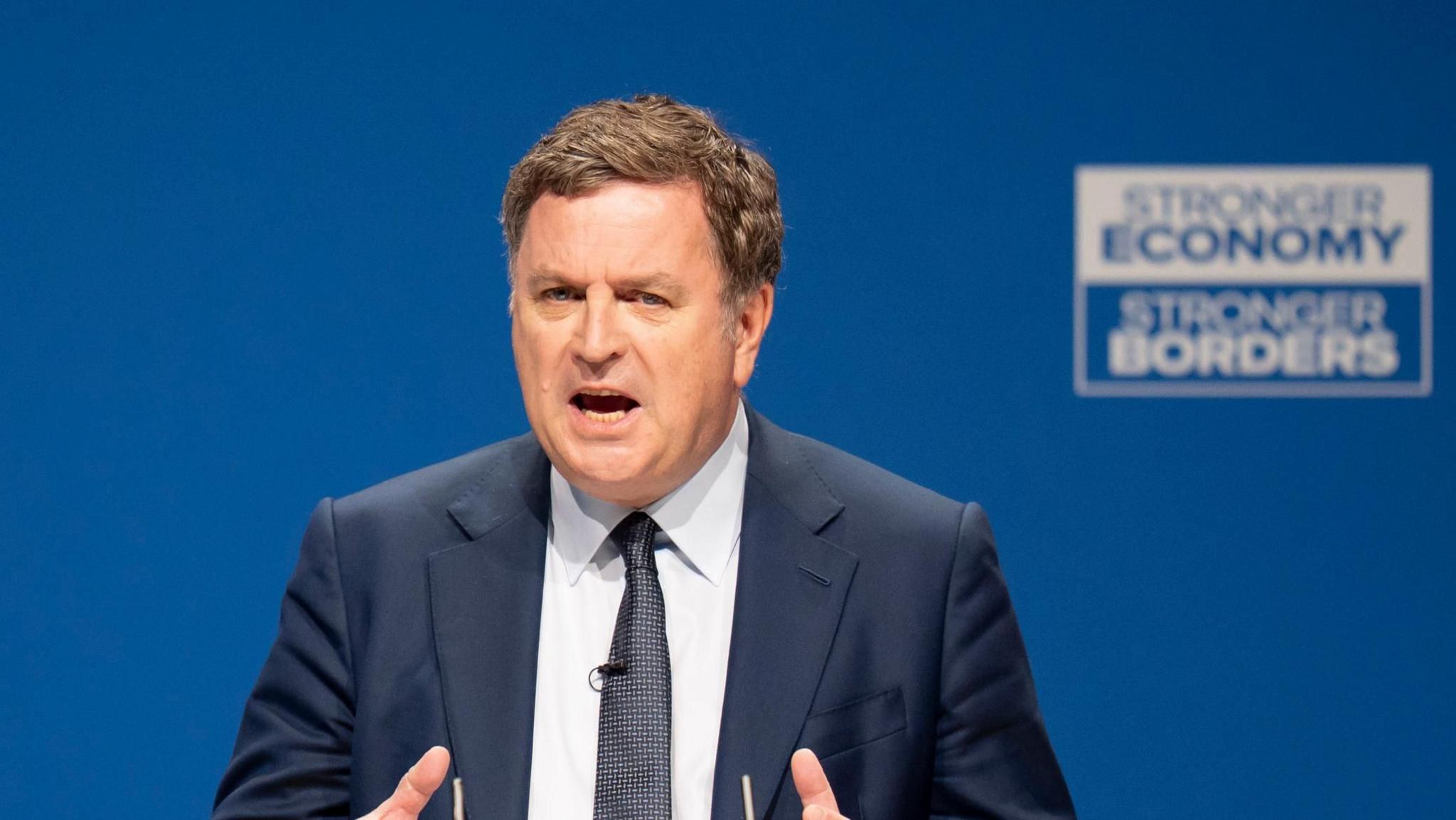Friend or foe? Tories grapple with rise of Reform
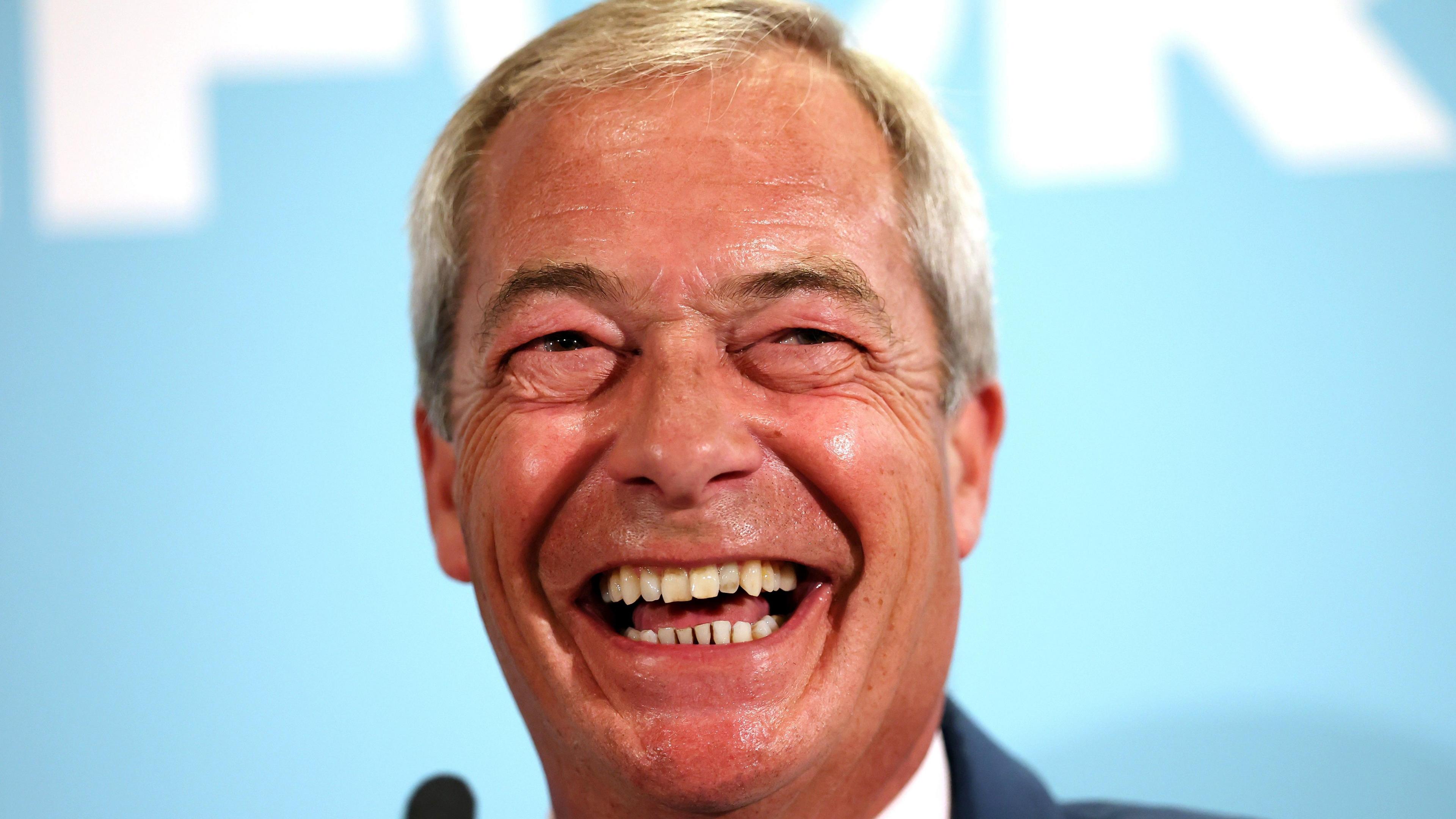
- Published
The image of Nigel Farage has loomed over this party conference season, as the established parties scramble to come up with a response to the rapid rise of Reform UK.
Labour and the Liberal Democrats launched all-out attacks on Farage, portraying him as a threat to the very fabric of British society.
But here at the Conservative Party conference, the attacks have, in general, been more muted. Reform is not just an electoral menace to the Conservatives, but an existential one.
The party is leaking members, elected officials, and influence to Reform. In the past few hours, Farage's party has unveiled a further 20 Tory defectors on local councils.
The Tory leadership's strategy for dealing with this is to portray Farage as someone who does not have serious answers to the country's problems, who will say anything to get votes - including posing as a left-winger when it suits him.
At an event on Sunday evening, Shadow Housing Secretary James Cleverly branded Farage a "socialist" - the worst insult in the Tory lexicon.
The audience dutifully booed at the mention of the Reform UK leader's name but speaking to Tory members afterwards, it was clear many feel uncomfortable about these kind of attacks.
They view Farage as one of their own - a Tory at heart, who should be welcomed back into the Tory fold, rather than vilified.
Reform supporters are their friends and, in an increasing number of cases, former colleagues. They want to "unite the right" ahead of the next general election.
The fact that Farage has ruled out any kind of deal with the Conservatives is met with bewilderment. Equally, Conservative leader Kemi Badenoch has also ruled out a deal with Reform.
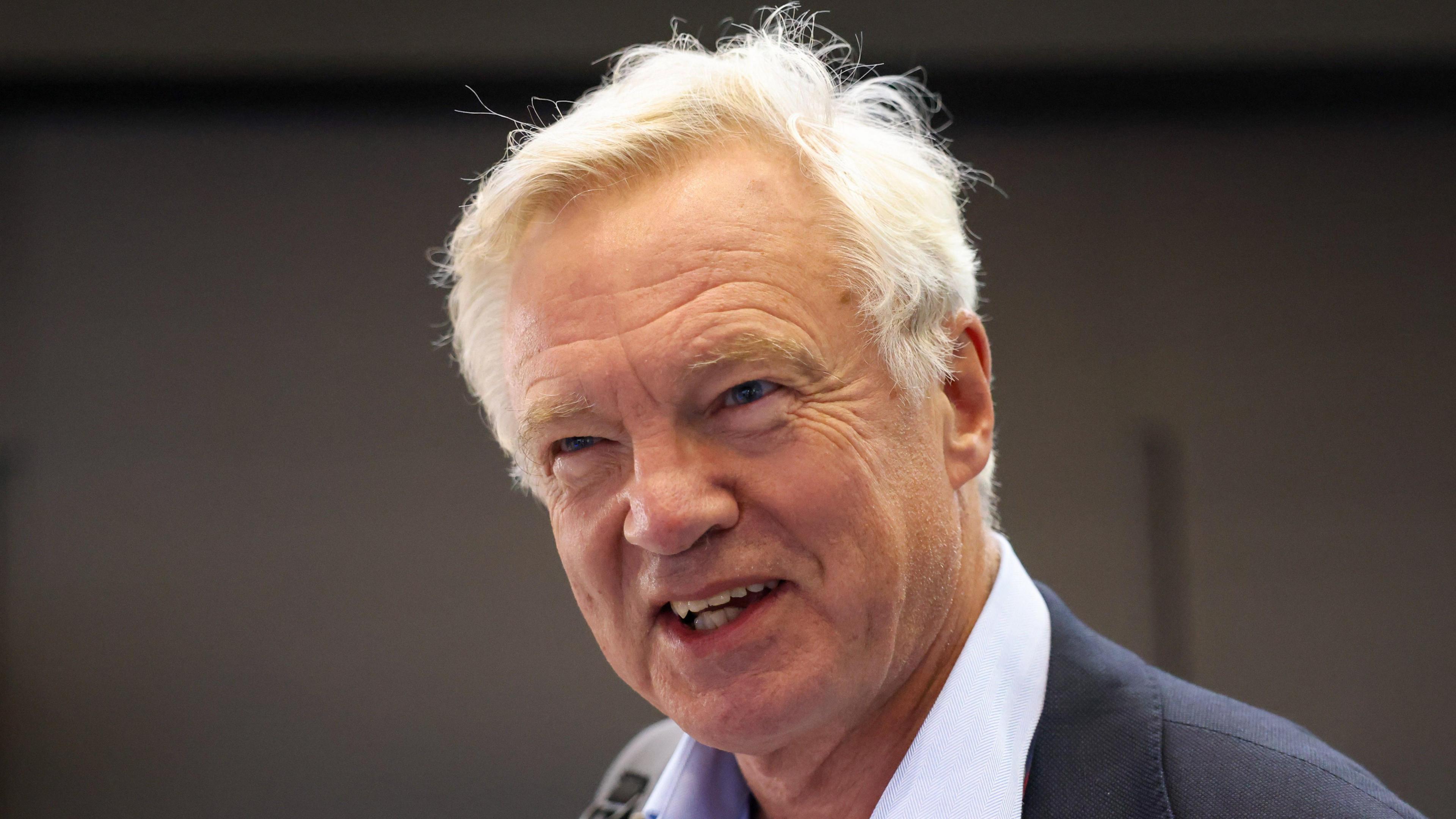
Veteran MP David Davis is keeping the Tory faith
At a fringe meeting on Monday, former Brexit minister Lord Frost gave a brutal assessment of the Conservatives' prospects under its current leader.
"I think the mood of this conference so far is far too positive. And I think we have to be honest about the situation we find ourselves in," he told a tent packed with Tory activists.
The party had lost 10 million votes between the 2019 general election and 2024 and its dire opinion poll ratings appeared to be in free fall, he told them.
"Everything is getting worse and it has done so consistently since November last year.
"We were on 25% of the vote then, we are on 16% of the vote now.
"So no prescription for the party works unless we accept that the situation is really bad and we are on the edge of ceasing to exist as a mainstream party."
He did not mention Badenoch by name but criticised the "torpor" of the party over the past year, since she became leader, which he said had made it more difficult to "recreate a proper, strong Conservative Party".
"We need to stop rubbishing Reform or at least stop rubbishing people who vote for Reform," he said to cheers from Tory activists.
"We look to the country like we've got some sort of right to votes. We look entitled."
Frost said the answer was a shift to the right on policy and a clearer definition of what the Tory party stands for, with no place in it for those who did not agree.
Frost's gloomy prognosis is not shared by other senior Tory figures, in public at least.
Former Brexit Secretary David Davis joked this week that Nigel Farage asks him to defect to Reform UK every time he sees him.
"Oh, every time I see him and Lee Anderson. I mean, 'the doors always open, David', and because it's a daytime programme I won't say what I said," he told BBC Radio 5's Matt Chorley.
At a fringe meeting on Monday, Davis said he believed Kemi Badenoch was "on the right lines" and the party could win the next election.
He argued that the UK was on the brink of a financial crisis "because there is no way out of the current financial circumstance that is available to the Labour Party".
And this, he argued, will present "enormous opportunities" for the Conservatives, who he said are prepared to make the "tough decisions" needed to get the country's finances back on track.
Just as the run up to the 1979 general election was overshadowed by economic turmoil and decline, so it will be in 2029, claimed the veteran Tory MP.
"As the only person here who actually served under Margaret Thatcher," he told the packed fringe meeting.
"I can tell you that in the late 70s, she was being talked down too.
"For precisely the same reasons. A bit too tough, a bit too hard edged, a bit too dangerous... but then we had a crisis and, suddenly, Thatcher was the right answer.
"If we have another crisis, then Badenoch will be the right answer too."
It's not a message the Tory leader is likely to repeat in her conference speech on Wednesday - but how she calibrates her response to the threat of Farage and Reform will have a major bearing on whether she will survive long enough to test the theory out.
Related topics
- Published5 October
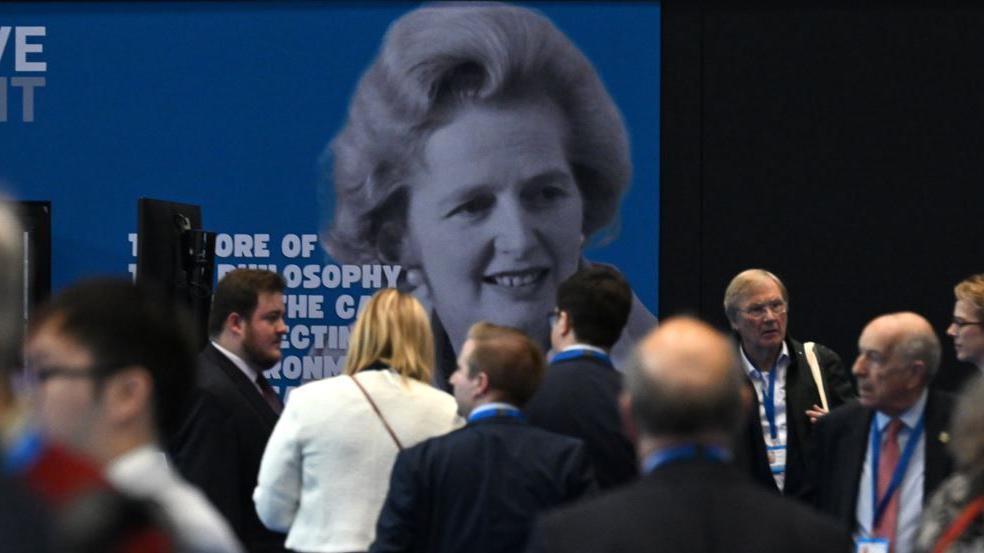
- Published6 October
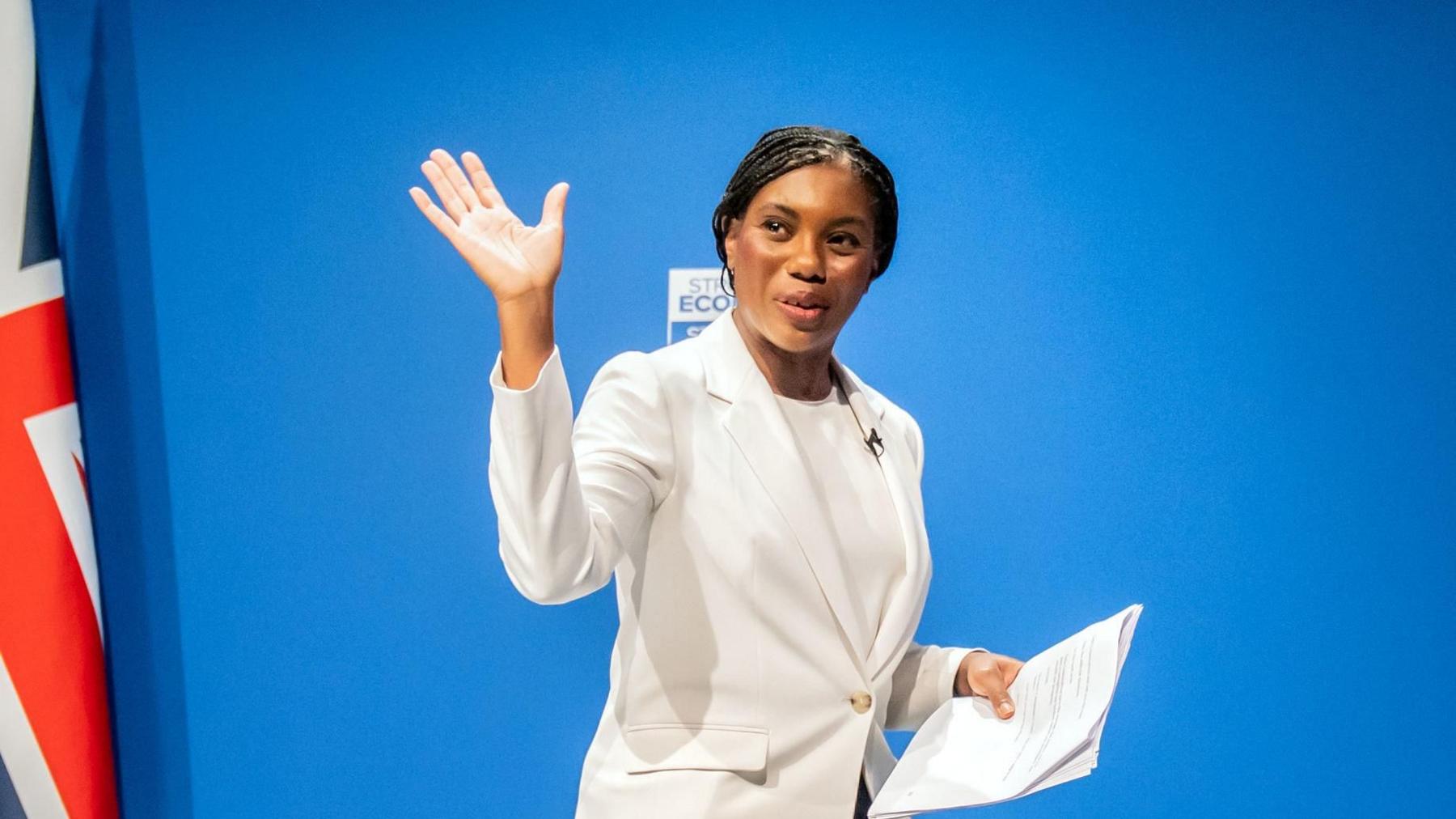
- Published7 October
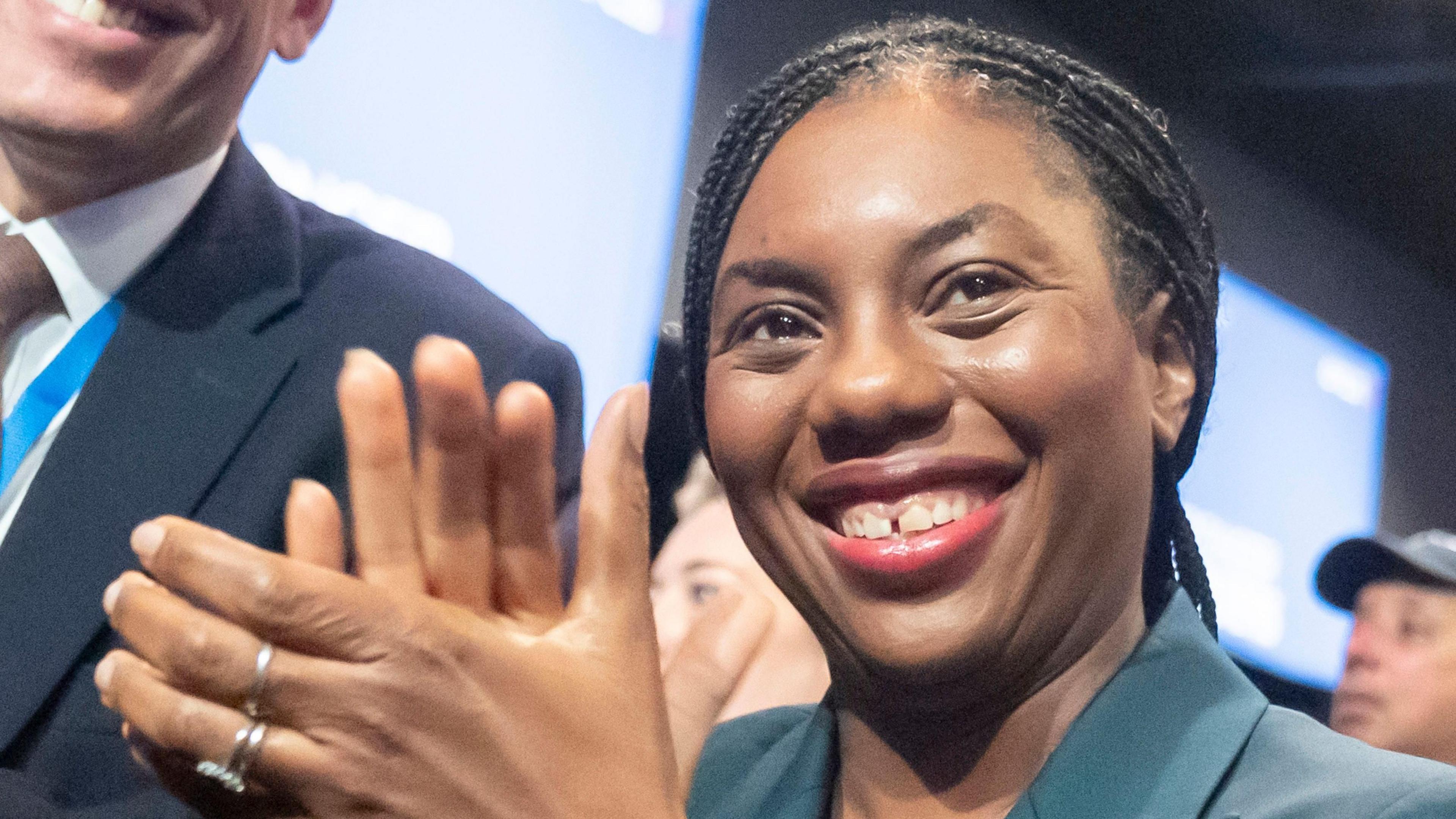
- Published6 October
